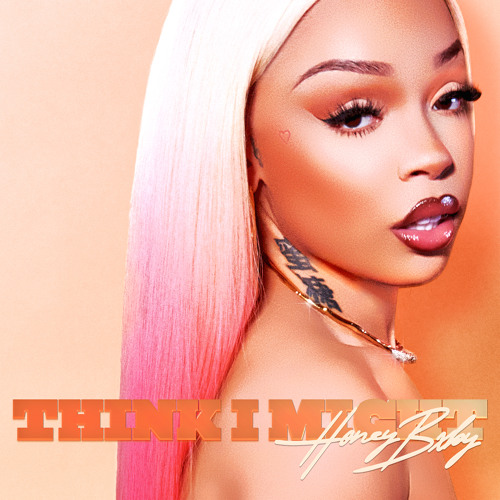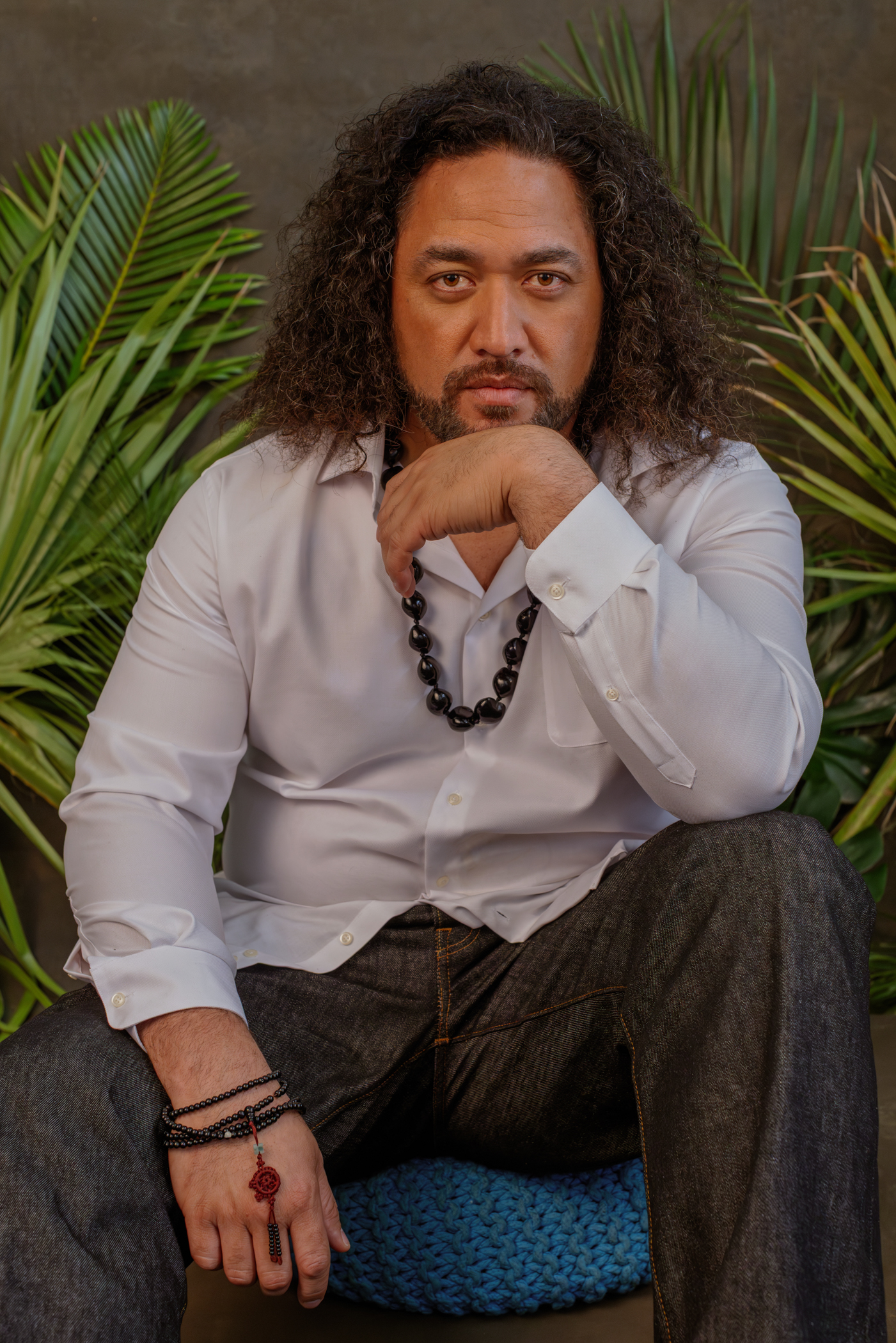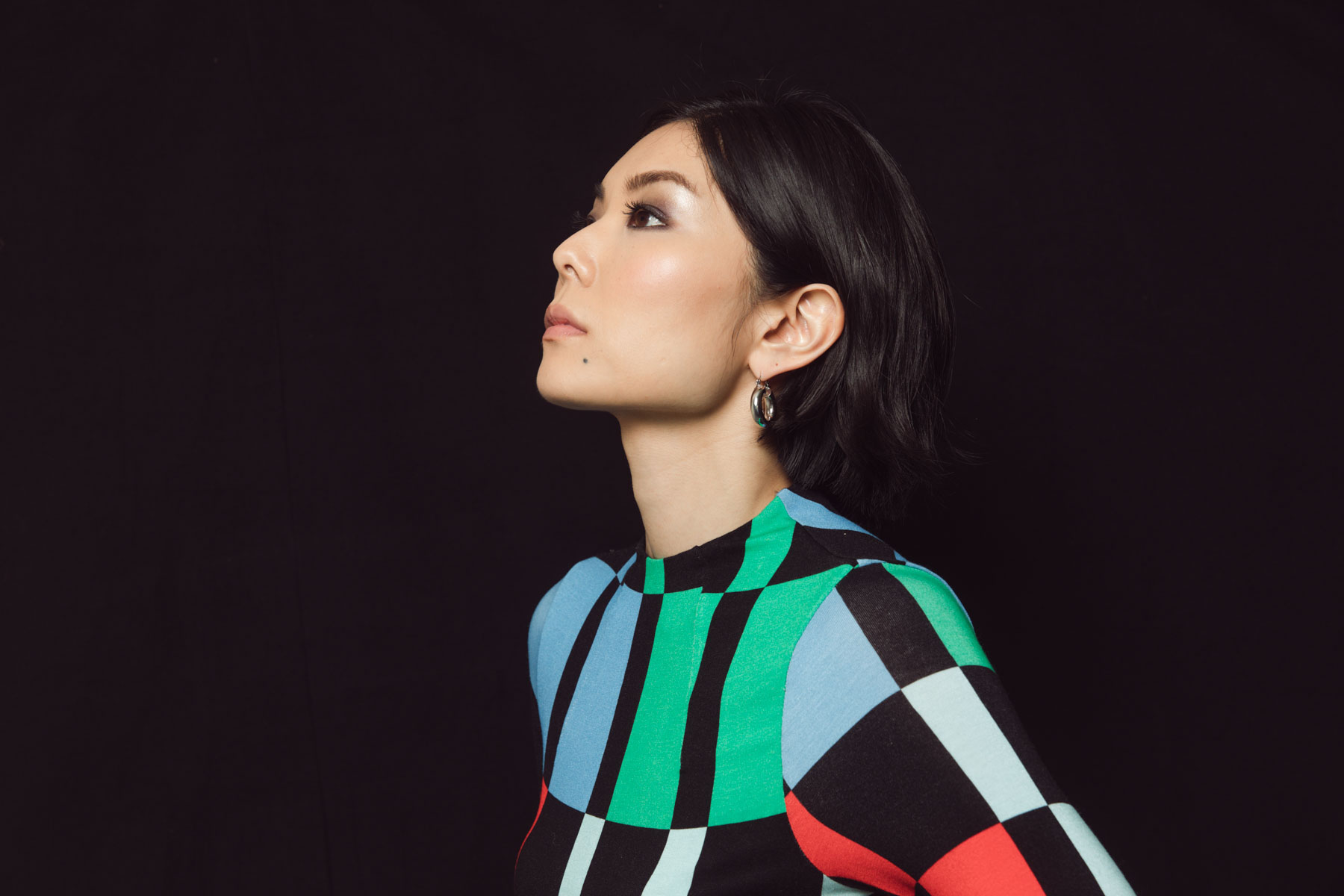
From Yakuza Princess to Assassin’s Creed: MASUMI is the Moment

By Kyra Greene
MASUMI is redefining what it means to be a global artist—one who embodies both legacy and evolution. From Netflix’s Yakuza Princess to voicing Naoe, the first Japanese female lead in Assassin’s Creed Shadows, she’s charted a path marked by power, grace, and resilience. With roots grounded in cultural duality and a spirit shaped by lived experience—from surviving the 2011 Tokyo earthquake to singing in small cafés—MASUMI’s story is more than just one of talent. It’s a testament to the quiet rebellion of choosing truth, depth, and dimensionality in an industry still catching up to her.
- You’ve worked across American and Japanese industries—how do you balance honoring your heritage while making space for your individuality as an artist?
I’ve worked internationally, but I’ve never actually worked in Japan in the entertainment industry! So hope I get to one day 😉 But I feel my individuality is stemming from my heritage, not in tug of war with each other. Having a family heritage of strong women with equally strong intuition has always reassured me of my fortitude and faith in spirit. My life has been blessed with both American and Japanese cultural influences, which have given me a diverse palette of colors to express myself and understand myself. And I feel my ancestors are proud of me for pushing boundaries and expanding in ways they couldn’t at the time of their lives.
2. What does it mean to you to be part of a growing wave of Japanese and Japanese-American representation in global entertainment?
It gives us a chance to be seen in full dimension, not only to the non-Japanese/Japanese Americans, but to ourselves as well. Because sometimes we fear accepting the very things we say we want. So I hope this push will not only earn us seats in the global entertainment, but also give us permission to be seen in diverse stories.
3. How has being bilingual shaped the kind of roles you’re drawn to or how you approach character development?
When I speak in Japanese, I’m much more reserved. When I speak in English, I’m more emotionally open. But when I add Japanese accents to my English lines, it’s a combination of both because the accent grounds me in my Japanese attitude, and the English helps me be more emotionally expressive. Sometimes I’ll choose the accent to add a language barrier as another obstacle for my character to fight for. Still so much more to explore though!
4. Your breakout in Yakuza Princess had you doing your own stunts and martial arts. What kind of physical and emotional preparation did that role require?
I had never done martial arts beyond boxing at that time, so I needed A LOT of physical and emotional prep to learn the stunts and own the character. I had a stunt coordinator, kendo classes, and my husband’s after-hours training for all the fight scenes! All the action scenes were done during the evenings from midnight to 6 AM, and that was really tough at times, too. There were a few times I broke down crying from all the pressure! haha but I was able to do it because of everybody’s support. It’s 3 months that I treasure.
5. For a debut performance to land in Netflix’s Top 10 globally is rare. What was going through your mind as the world was discovering you in real time?
Aw thank you! I just felt really grateful for the people watching what we worked so hard on. I don’t remember thinking about anything else, honestly.
6. In Assassin’s Creed Shadows, you voice NAOE—the franchise’s first Japanese female lead. How did you find her voice emotionally and psychologically?
I tapped into the voice inside of me, and inside of all the female ancestors before me who had gone through this very historical moment. The teenager who wanted to help her father, protect her community, and find her long-lost mother. I don’t think Naoe is a rare female character that I needed to do extensive research for. She’s in all of us women who have fierce anger, deep love, and a strong sense of responsibility all tangled up. I’m just grateful that the creators of Assassin’s Creed Shadows were willing to highlight a powerfully layered female protagonist in their story, and not lean into the stereotypes of what a ‘strong female character’ should look like.
7. Were you familiar with the Assassin’s Creed franchise before joining the cast, and what was your reaction when you found out you’d be leading such a major title?
I didn’t believe how big the game was when my husband was telling me about it! I also intentionally refrained from finding out too much about the scale, so I can focus on the project at hand. Sometimes it’s better not to know everything all at once, haha.
8. What surprised you most about working in video games versus film or television—and did you approach performance differently for NAOE?
I didn’t realize how sensitive the PCAP helmets were in MOCAP. They have two cameras attached to it that capture my facial expressions. Moving the helmet an inch, meant a time out from shooting to recalibrate the cameras, which took up about 10 minutes. It felt like I was my own camera person at times, needing to be aware of the stability of the cameras, especially during more emotional scenes or ones with bigger physical movements. That was definitely one of the unexpected challenges I had shooting for a video game, where I had to adjust my performances accordingly.
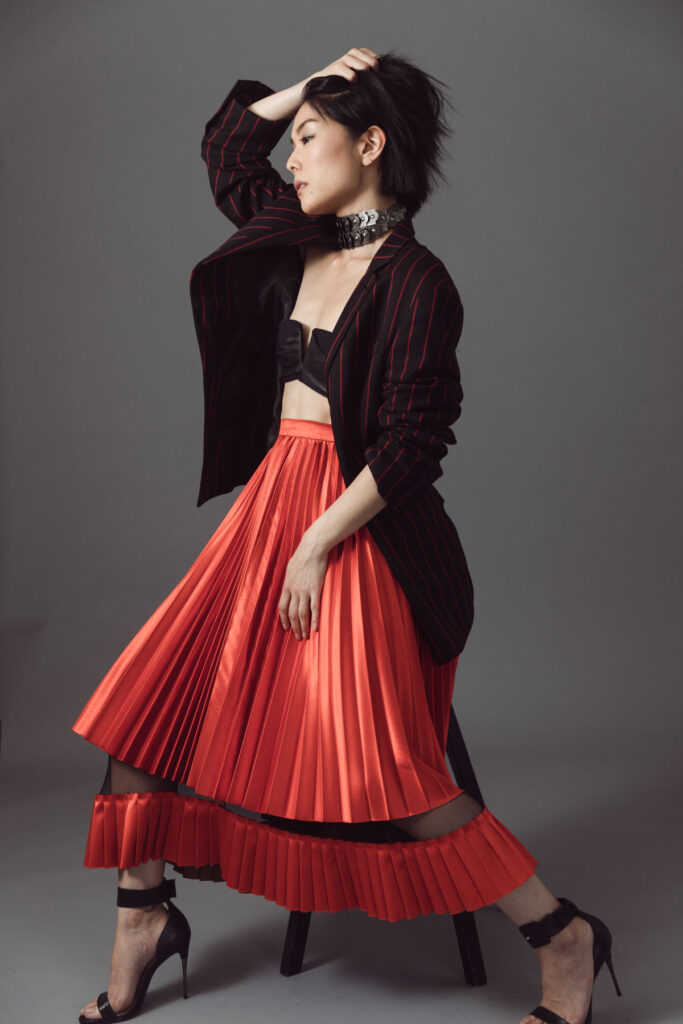
9. Has your experience with Assassin’s Creed Shadows sparked an interest in lending your voice to other video game franchises or animated projects?
I got to do a little bit of VO on a project called ‘MindsEye’ that just came out on June 10th, also! I definitely want to keep working in this world, so planning to hone my skills and hopefully take on other exciting projects!
10. You’ve said the 2011 Tokyo earthquake was a turning point. What did surviving that moment teach you about purpose, and how did it lead you to dedicate your life to art?
That incident taught me that life was way too short to live with regrets or in cowardice or unknowns. And if you have been living that way, then the moment of truth, like the one I had, will teach you about regrets that dig deeper than death itself. I also lived with a lot of survivor’s guilt, not knowing why I got to live when so many were lost. Since then, my purpose has been to show how immensely capable and powerful we are in creating the life we want by facing my fears and every unknown that comes my way. I think my lifelong goal through art is to reflect humanity’s strength through the characters I play. I have also started to speak on panels and in Universities about my journey and approach, hoping to offer something meaningful that helps the younger generation find their voice and power.
11. Looking back on everything—from small cafés with a guitar to the BAFTA stage in London—what has been your most grounding moment as an artist?
Each time I’m given an opportunity, I remember the very first one that was given to me, and the one before that, and the one before that. I stand here because of all the people who saw something in me, even when I had nothing at all. I had a challenging childhood, and I was bitter for a big chunk of my youth. Yet kind people flocked around me and showed me what was possible. I tell myself that I will make them proud with each opportunity I receive, because that is the truest form of 恩返し(returning kindness) I can offer. So to answer your questions, every single opportunity, big or small, has grounded me in gratitude. A reminder of the people who saw something in me and gave me a bit of their wisdom and kindness. And for them, I will never allow myself to become arrogant or lazy. I hope I can use this to do good for others, the way it was gifted to me.
12. You’re currently shooting The Weight of Darkness in Los Angeles. What drew you to that project, and what can audiences expect from your role?
We actually wrapped that one a while ago! What drew me to The Weight of Darkness was the chance to work with people I trust and admire, like my friend Nobu Shimamoto and director Marc Furmie, who became a friend through the project! Acting found me by surprise, so I’ve rarely had the chance to approach it just for fun. But this project gave me that! I play Jaime King’s best friend, and it was an honor to share the screen with her. There’s a beautiful scene with her that I will always consider one of my favorites. The cast also includes Angus Macfayden from Braveheart, and Doug Jones from The Shape of Water, and so many iconic games—working with actors of that caliber reminded me why I love storytelling.
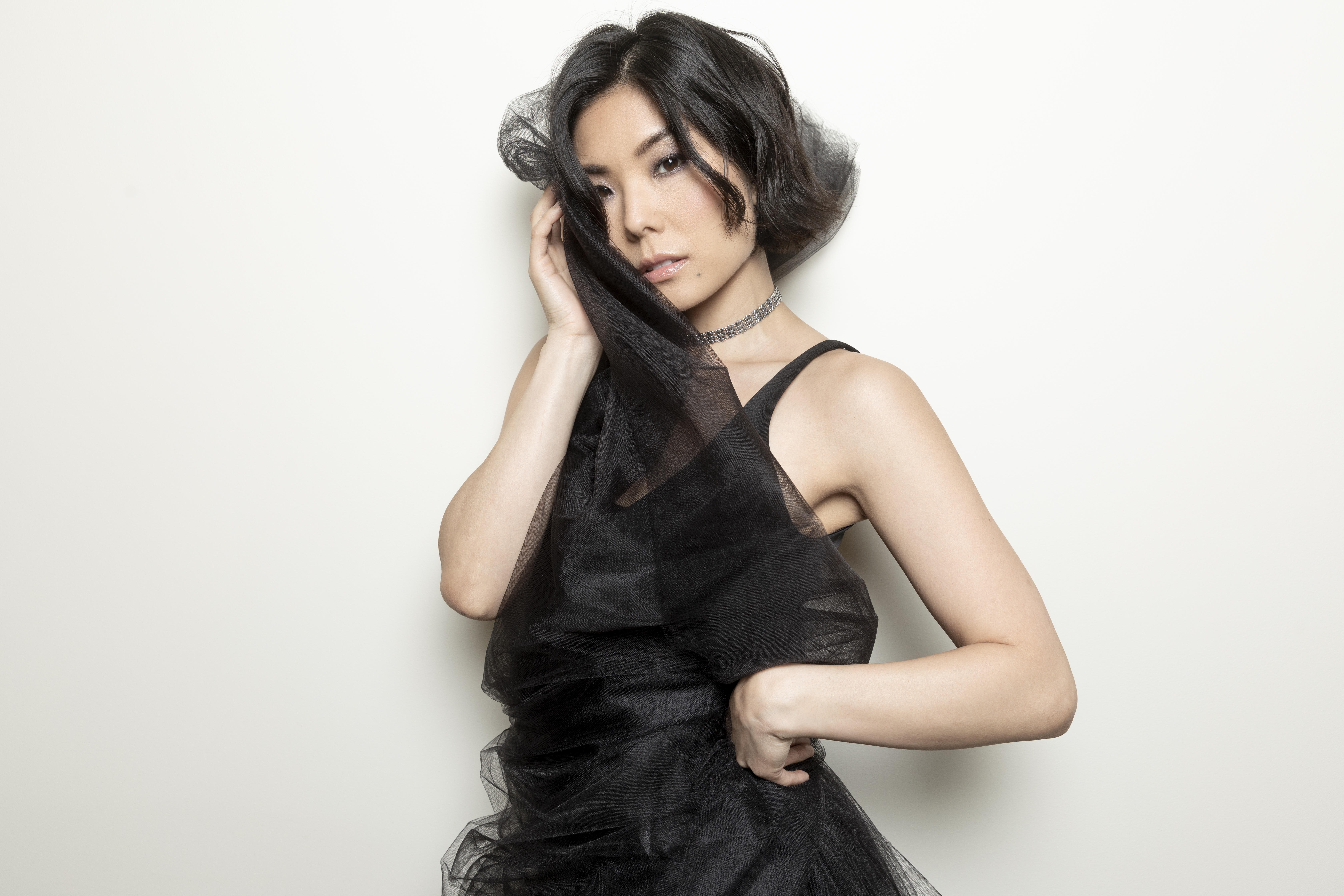
13. Before acting, your first artistic language was music. How did writing and performing your own songs prepare you emotionally for the screen?
I knew what it felt like to tell the truth; music taught me that. Many of my song lyrics come from my journal, so I knew when I didn’t believe what I was singing/performing. I always felt like my strength in singing was my ability to connect with it. I knew how to take up space when the moment needed it, so I think that sense helped me understand acting as well.
14. Do you still make time for music, and if so, how does that creative process feed or contrast with your work in film and television?
I’ve stepped away from writing music. But I have so many songs I still want to record. I think when the right time comes, I’ll get back into the studio and do live shows again. But I haven’t had the space for it just yet 🙂
Whether she’s in a motion-capture suit or sharing wisdom on university panels, MASUMI carries a rare integrity—one rooted in gratitude, curiosity, and deep emotional fluency. Her journey proves that honoring where you come from doesn’t mean staying in one place—it means knowing how to build bridges between past and future, language and action, spirit and screen. As she continues to expand her voice across mediums, MASUMI is quietly, powerfully shaping a more honest and expansive future for global storytelling.
Photos Diana Ragland


